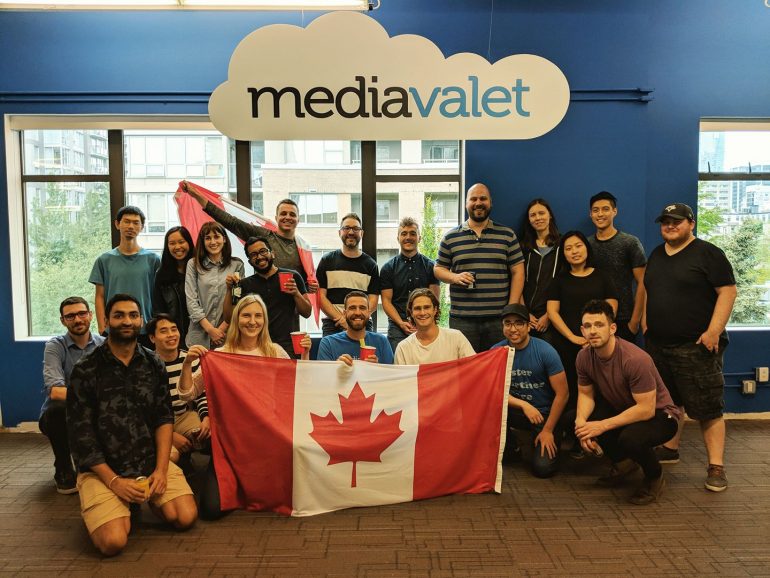As part of a regular series powered by Microsoft, BetaKit interviews prominent Canadian CTOs speaking earnestly on the biggest challenges they face in their role, as well as future technology predictions in their space.
While most CTOs interviewed for this series love talking about building and running technology at their company, MediaValet CTO Jean Lozano will proudly tell you he has six jobs, and only two of them are tech related. The other four revolve around the “C” in his title, chief.
A two-time CTO, Lozano knows what it means to build a great technical product. But it’s through his experience growing MediaValet’s tech team to over 20 people that he’s realized many CTOs spend too much time thinking about tech and not enough time working to build a business.
A CTO’s first job
MediaValet, a digital asset management system, came to life ten years ago when the then-digital production studio started getting questions from clients about how to store their data on this new technology called “the cloud.”
“Ten years ago, all digital asset management systems were on premises,” Lozano said. “Then cloud came about. We were not in the industry yet, we were just a production studio. I had to understand how the cloud could disrupt managing digital assets.”
This insight is actually what Lozano identifies as his first job of six: managing innovation.
“I am always out there looking for new technologies that could have an impact on the industry that we’re in,” he continued. “If I find a technology that I think could be disruptive then I’m forced to dive into it.”
You can’t just ‘slap some AI’ onto your product
Lozano’s second job as a CTO is to build scalable architecture to build MediaValet’s actual products and services. In particular, his role is ensuring that the platform can evolve as technologies do.
“It’s not just ‘I’m slapping AI into the product that we have’, it’s also my job to devise a framework on how to integrate with AI,” he said.
Lozano evangelizes what he calls “cognitive metadata,” a taxonomy framework he developed for MediaValet customers that uses AI to increase the confidence interval that a picture is tagged correctly and more easily identified and sorted by technology.
Evangelization is Lozano’s last job of six, but it’s the middle three roles that Lozano sees as the most important.

Listening creates opportunities
“The third is to develop people within the team,” he said. “My success is based on the success of everybody on the team. The fourth job is listening to customers. I don’t know how other CTOs do it, but I’m on regular calls with customers—especially customers with non-standard requirements—and I am always trying to understand what they need.”
Listening to customers helped Lozano come up with his cognitive metadata idea, but it was his focus on developing a team and building scalable architecture that brought the idea to life.
All the ideas in the world, though, don’t help the business grow if you can’t find new customers. Lozano said he looks for them by looking for the unhappy customers of competitors, his fifth job.
“I always love to hear what other people have to say about implementations of other competitors so that I know I can learn from other people’s mistakes,” he said, citing an example where a competitor’s AI implementation corrupted the customer’s metadata. “So I have this potential new customer. For me, it’s an opportunity. I learned if there’s AI metadata coming in, the framework needs a way to isolate metadata from AI versus metadata from the DAM (digital asset manager).”
A business leader in tech, not a tech leader in a business
For a man with six jobs, Lozano doesn’t seem too concerned about the impact on his family life. In fact, he says there really isn’t one at all.
“In a startup, it’s the company and the customer. Everybody within the walls of the company is part of the team.”
“The good thing about being in a startup is that I get flexibility,” he said. “If my son has a school event, I go. I’m still part of the board for the school. I participate in those things as well because it’s important for me to know what’s going on with my kids. It’s just that ‘me time’ is significantly less, so you have to make the most out of it.”
Lozano’s mentality of making the most of his ‘me time’ leads to the advice he would give not only to a senior technologist at a big firm considering startup life but also himself: delegate, but observe. You may save a bit of time in the beginning if you delegate and move on, but you risk losing valuable institutional memory which will take time, and money, to get back later.
“I’m big on delegation, but not everyone stays in the company for a very long time,” he said. “Considering how competitive the Vancouver job market is, it’s not out of the ordinary that someone gets offered 60-100 percent more than their current rate. When you have delegated to that person something that’s critical, the setback is pretty major.”
Lozano believes the wrong approach to delegation is part of a bigger trap that can hinder a good startup CTO, namely seeing yourself as a business executive that builds technology, not a tech leader within a business.
“Most of the time, people in bigger companies think in terms of themselves and then the department that they work with,” he said. “Everybody outside the department is an outsider. That doesn’t work for a startup. In a startup, it’s the company and the customer. Everybody within the walls of the company is part of the team.”

